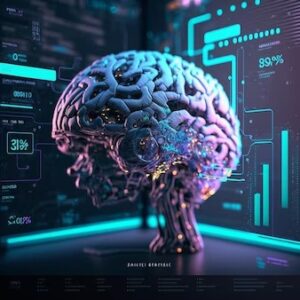What is responsible AI?
Responsible AI is the practice of designing, developing, and deploying AI systems in a way that is ethical, fair, and accountable. It is about ensuring that AI systems are used for good and that they do not harm individuals or society.

Why is responsible AI important?
AI is becoming increasingly powerful and pervasive in our lives. It is being used in everything from healthcare to finance to transportation. As AI becomes more integrated into our lives, it is important to ensure that it is used responsibly.
There are a number of reasons why responsible AI is important. First, AI systems can be biased, which can lead to unfair outcomes. For example, an AI system used to make hiring decisions could be biased against certain groups of people, such as women or minorities.
Second, AI systems can be opaque, making it difficult to understand how they work and why they make the decisions they do. This can make it difficult to hold AI systems accountable for their actions.
Third, AI systems can be misused, either intentionally or unintentionally. For example, an AI system could be used to create deepfakes, which are videos or audio recordings that have been manipulated to make it look or sound like someone is saying or doing something they never actually said or did.
Principles of responsible AI
There are a number of principles that can guide the development and deployment of responsible AI systems. These principles include:
Fairness: AI systems should be designed and deployed in a way that is fair and unbiased.
Transparency: AI systems should be transparent, so that people can understand how they work and why they make the decisions they do.
Accountability: AI systems should be accountable for their actions. This means that it should be possible to hold AI systems responsible for their decisions and for any harm that they cause.
Privacy: AI systems should protect the privacy of individuals. This means that AI systems should only collect and use data in a way that is consistent with the privacy expectations of individuals.
Security: AI systems should be secure. This means that AI systems should be protected from unauthorized access, use, disclosure, disruption, modification, or destruction.
How to develop and deploy responsible AI systems

There are a number of steps that can be taken to develop and deploy responsible AI systems. These steps include:
Identify the potential risks and harms associated with the AI system. What are the ways in which the AI system could be biased, opaque, misused, or cause harm?
Design the AI system to mitigate the identified risks and harms. This may involve using techniques such as data debiasing, model explainability, and adversarial training.
Test the AI system to ensure that it is operating as intended and that it is not introducing new risks or harms. This may involve testing the AI system on a variety of different data sets and scenarios.
Deploy the AI system in a responsible manner. This may involve monitoring the AI system for bias and other problems, and having a plan in place to address any problems that are identified.
Continuously monitor and evaluate the AI system. As the AI system is used in the real world, it is important to monitor its performance and to identify any new risks or harms.
Conclusion
Responsible AI is essential for ensuring that AI is used for good and that it does not harm individuals or society. By following the principles and steps outlined above, organizations can develop and deploy responsible AI systems that benefit everyone.
Additional tips for developing and deploying responsible AI systems:
Involve a diverse range of stakeholders in the development and deployment of AI systems. This will help to identify and mitigate potential biases.
Be transparent about the data that is being used to train and operate AI systems. This will help to build trust and ensure that AI systems are being used in a responsible manner.
Provide users with control over their data and how it is used by AI systems. This will help to protect users’ privacy and autonomy.
Be prepared to address the ethical implications of AI systems. This includes developing policies and procedures for dealing with issues such as bias, discrimination, and misuse.
If you have thoughts to share, questions to ask, or if there’s a specific topic you’d like us to cover in the future, please don’t hesitate to reach out. Your feedback and engagement drive us forward.
Until next time, keep learning, keep innovating, and keep pushing the boundaries of what’s possible.

